Northwestern Memorial Hospital PGY2 Residency Program
We are committed to helping train the next generation of pharmacists. Our PGY2 residency programs offer opportunities to learn alongside world-class experts while honing your skills and interests.
Key Information
- Application deadline: January 2, 2026
- Start date: July 1, 2026 (flexible)
- Estimated stipend: $56,160
- Number of positions: each program offers 1 position, except Oncology, which offers 3 positions.
How to Apply
To be eligible for any of our PGY2 residency programs, you must:
- Be a graduate of a Doctor of Pharmacy program from an ACPE-accredited school or college of pharmacy
- Have completed an ASHP-accredited PGY1 pharmacy residency program.
- Be eligible for Illinois pharmacist licensure.
- Participate in an interview.
- Register with both:
- PhORCAS
- The American Society of Health-System Pharmacists Resident Matching Service (NMS code 699076)
- Submit all application materials through the PhORCAS online portal by January 2, 2026, including:
- Curriculum vitae (CV)
- Letter of intent
- Three letters of recommendation (You may use the Standard Reference Form in PhORCAS for recommendations. You do not need a separate letter.)
- Pharmacy school transcripts
- Ambulatory Care
- Cardiology
- Critical Care
- Emergency Medicine
- Infectious Diseases
- Oncology
- Solid Organ Transplant
This program is designed to prepare residents to practice independently as a clinical specialist in an ambulatory care setting. The program exposes residents to a variety of practice settings for a well-rounded experience.
As a resident, you will serve as a key member of the ambulatory care team, helping in transitions of care to improve patient safety in the outpatient setting.
We offer one resident position each year.
Rotations
Orientation introduces the responsibilities and skills of a clinical pharmacist, as well as Northwestern Medicine policies. Clinical rotations will help you develop the skills needed for managing chronic diseases and build experience in specialty clinics.
Required rotations:
- Administration
- Cardiology (heart failure and general)
- Internal Medicine
- Advanced Internal Medicine
- Transitional Care Clinic
- Pharmacy Practice (starting a new clinic or improving an existing clinic)
Elective rotations:
- Research and/or quality improvement project rotation
- Oncology
- Infectious Disease – HIV and Hepatitis C
- Specialty pharmacy-focused clinic (you may choose):
- Inflammatory
- Neurology
- Oncology
- Women’s health and reproductive medicine
- Transplant
- Population Health
- Anticoagulation (VAD)
- Off-campus clinics in the Chicago-area suburbs:
- Cardiology
- Internal medicine
Additional Activities
- Pharmacy practice: As a PGY2 resident, you will work to develop a new clinic or expand services in an established clinic.
- Longitudinal clinic: You will spend one day every week in a longitudinal clinic.
- Presentations: We require each resident to present at:
- Two noon conferences
- One continuing education presentation
- Practice presentations for the research project
- Research: We require PGY2 residents to complete and present a research project on a topic they’re interested in and that is valuable to advancing the pharmacy profession. Various research mentors and co-investigators will help you choose your research project. You will have a research mentor to help you.
- Quality improvement project: As a PGY2 resident, you must participate in a process improvement project that advances pharmacy practice and patient care at Northwestern Medicine.
- Precepting: You will be involved with precepting PGY1 residents and pharmacy students during their learning experiences.
- Teaching certificate: You may participate in a teaching certificate program. If opportunities are available, you may also present didactic lectures.
Residency Program Director
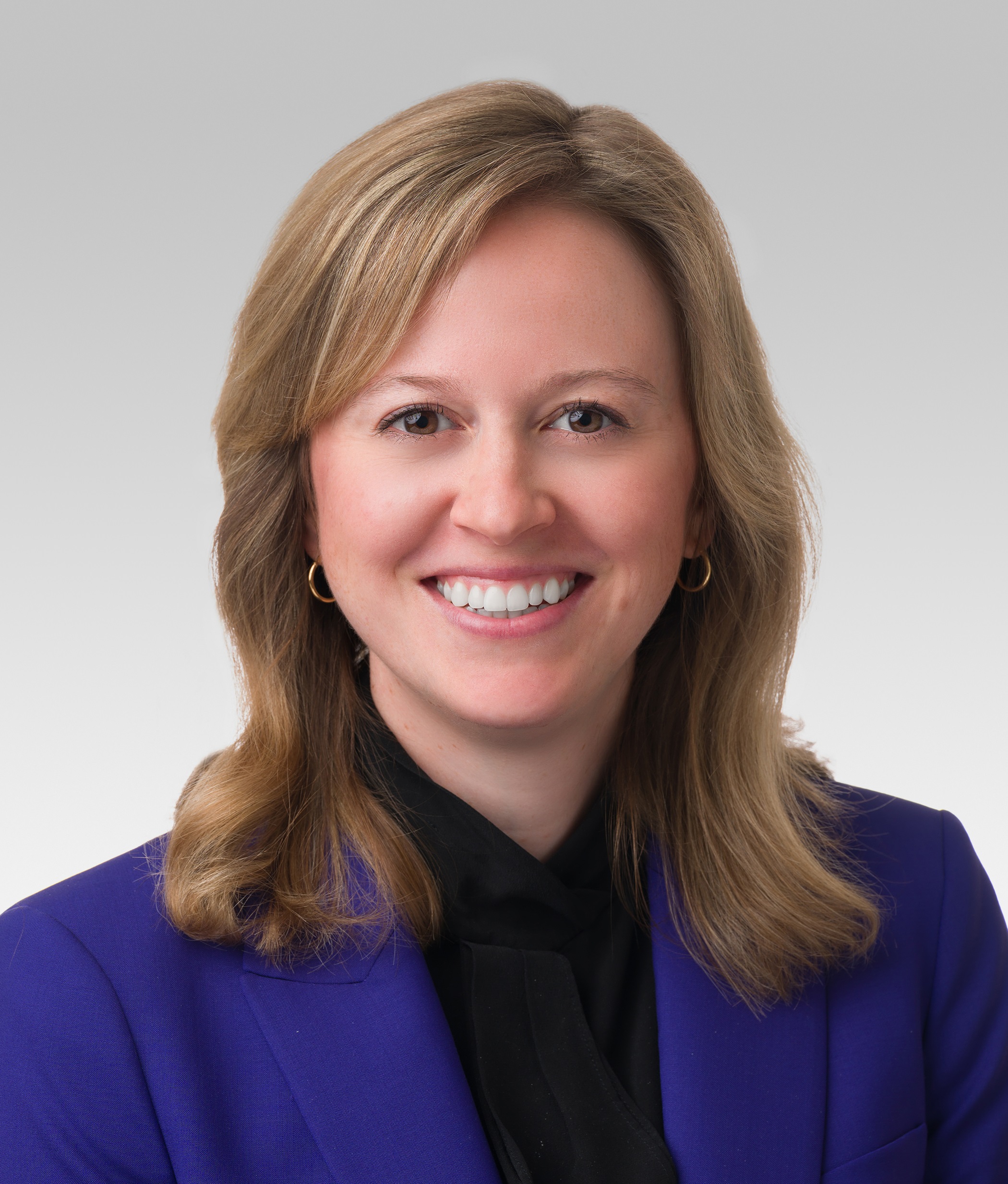 Bridget Dolan, PharmD, BCPS
Bridget Dolan, PharmD, BCPS
PGY2 Ambulatory Care Residency Program Director
Bridget is a Chicago-land native where she received her Bachelor’s of Science in Microbiology from the University of Iowa. She then earned her Doctorate in Pharmacy from Midwestern University Chicago College of Pharmacy. Following graduation, Bridget went on to complete a PGY1 Pharmacy Practice Residency at Northshore University Healthsystem and a PGY2 in Ambulatory Care at Northwestern Memorial Hospital. After graduation Bridget served as the outpatient clinical pharmacist in the Northwestern Medicine Specialty Pharmacy within the Inflammatory – gastrointestinal focused and Osteoporosis disease states then moved into a split role in Women’s Health and Fertility and Internal Medicine clinic. She has been practicing at Northwestern since 2017 and now practices as an ambulatory care pharmacist in the internal medicine clinics on the downtown campus assisting the value-based care team at Northwestern Medicine. She helped start collaborative practice agreements with a therapeutic protocol within internal medicine, which focuses on optimizing medication regimens for patients with Type 2 Diabetes, hyperlipidemia, and hypertension. She loves connecting with each patient to try to achieve their personal health goals. In March 2024, she started a new clinic in Palos Northwestern Bluhm Cardiovascular Clinic as the cardiology pharmacist focusing on cardio-kidney-metabolic, hypertension, hyperlipidemia, and heart failure. Bridget started her involvement within the program right after she graduated her residency and was the program coordinator from 2019-2021. She became the PGY2 Ambulatory Care Pharmacy Residency Director in winter 2021. She has helped expand the role for the pharmacist in clinics across Northwestern Medicine through collaborative practice agreements for chronic disease state management and enjoys helping other ambulatory care pharmacists grow their service lines. She is the primary preceptor to many IPPE, APPE students and PGY1 residents. She was the ICHP Ambulatory Care Network Vice- Chair from 2019-2020 and then became the Chair for the 2020-2021 year. Her passion is to advocate for pharmacists within Illinois to hopefully achieve provider status in the future. Bridget loves working with the residents each year in fulfilling their career goals. In her free time, Bridget enjoys spending time with her family and friends. She also loves to go on adventures with her son, husband and dog!
Contact
Northwestern Memorial Hospital
251 East Huron Street
Pharmacy Department, Feinberg LC 700
Chicago, Illinois 60611
Email: bridget.dolan@nm.org
This one-year training program focuses on delivering optimal pharmacotherapy to patients with cardiology issues in a variety of settings, ranging from the ICU to ambulatory care settings. In our program, you will gain exposure to many cardiovascular disease states, helping you become a well-rounded practitioner.
We offer one resident position each year.
Rotations
Required rotations:
- Orientation
- Heart Failure Titration Clinic
- General Cardiology
- Advanced Heart Failure/Transplant I
- Advanced Heart Failure/Transplant II
- Cardiac/Coronary Care Unit (CCU)
- Electrophysiology Consult
- Cardiothoracic Intensive Care Unit (CTICU)
- Cardiothoracic Surgery Step-Down
- Medication Safety and Policy/Administration
- Ventricular Assist Device and Heart Transplant Clinic (longitudinal)
- Pharmacy Practice (longitudinal)
- Research (longitudinal)
Elective rotations include the options below. You may arrange additional elective rotations based on your interests and service availability:
- Transplant Infectious Diseases
- Congenital Heart Disease
- Medical ICU
- Emergency Medicine
Additional Activities
- Research project: Each resident will complete an independent, longitudinal research project that they present at the American College of Cardiology Conference or another cardiology conference.
- Presentations: Each resident will present:
- Two formal noon conference presentations throughout the year
- One continuing education presentation
- Two defense presentations related to their research project
- Quality improvement project: Each resident will help produce, edit or change at least one cardiology procedure or protocol.
- Committee participation: You will longitudinally participate in two institution-based subcommittees. We encourage residents to get involved in one professional society committee.
- Transitions of care: Throughout your residency year, you will serve as the clinical pharmacist one day every other week in the Ventricular Assist Device and Heart Transplant Clinics.
- Precepting experiences: You will be involved with precepting PGY1 residents and pharmacy students during their learning experiences.
- Teaching certificate: You may participate in a teaching certificate program. Didactic lecture opportunities at local colleges of pharmacy are available upon request
Staffing
As a resident, you will:
- Provide evening clinical service coverage every third weekend as the decentralized ICU pharmacist.
- Be expected to staff one winter holiday (Thanksgiving, Christmas or New Year's Day) and one summer holiday (Memorial Day, Fourth of July or Labor Day).
Program Staff
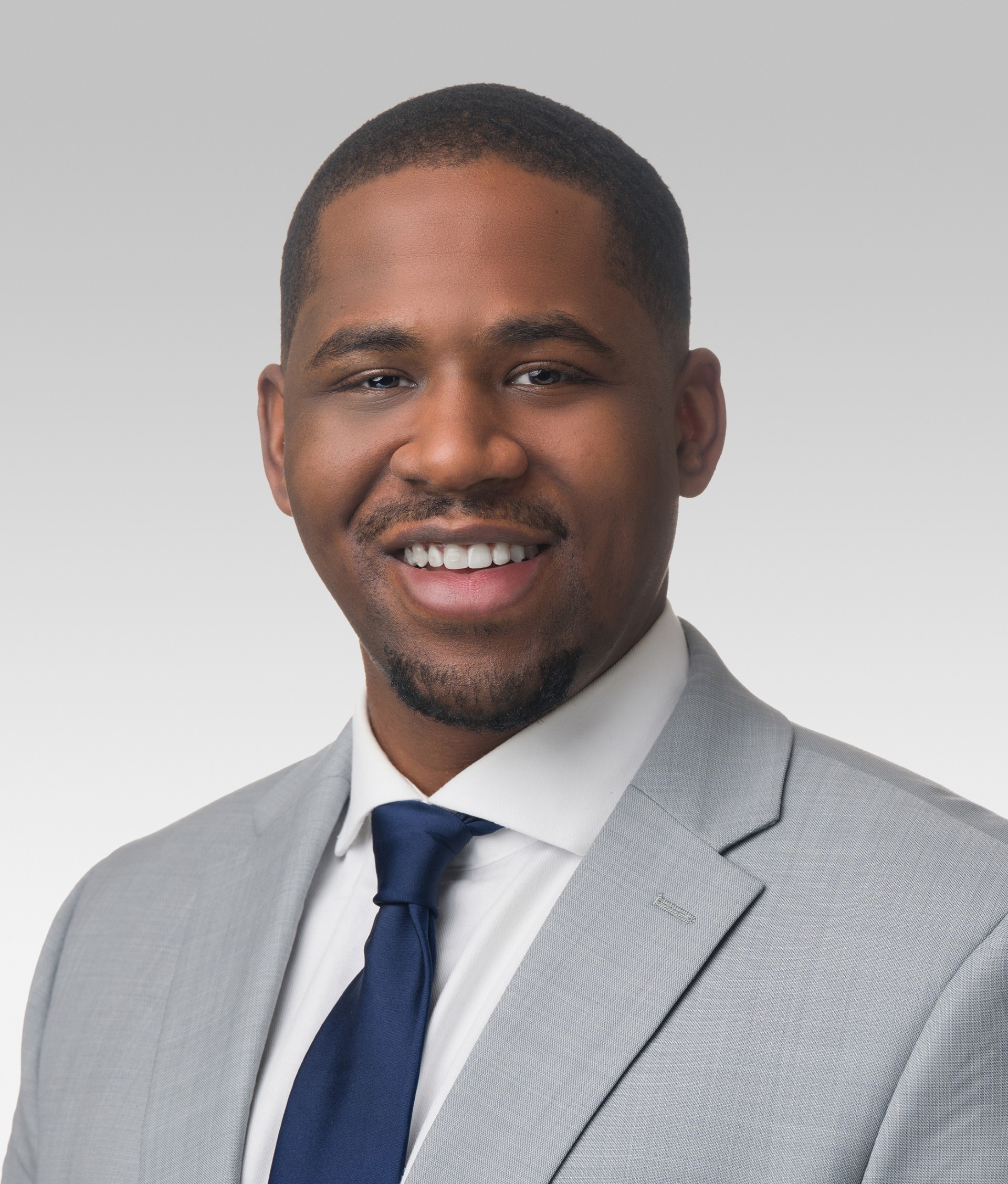
Byron Stevenson, PharmD, BCCP
PGY2 Cardiology Residency Program Director
Byron earned his Doctor of Pharmacy degree from Midwestern University Glendale College of Pharmacy. He completed his PGY1 pharmacy residency at St. Joseph’s Hospital and Medical Center, followed by a PGY2 cardiology residency at the University of California, Davis Medical Center. At Northwestern Memorial Hospital since 2022, he serves as a clinical pharmacist in the Coronary Care Unit. He is deeply committed to advancing the role of cardiology-trained pharmacists through clinical research, education, and specialized residency training. His practice focuses on delivering precise, evidence-based therapeutics to a diverse and complex cardiovascular patient population.
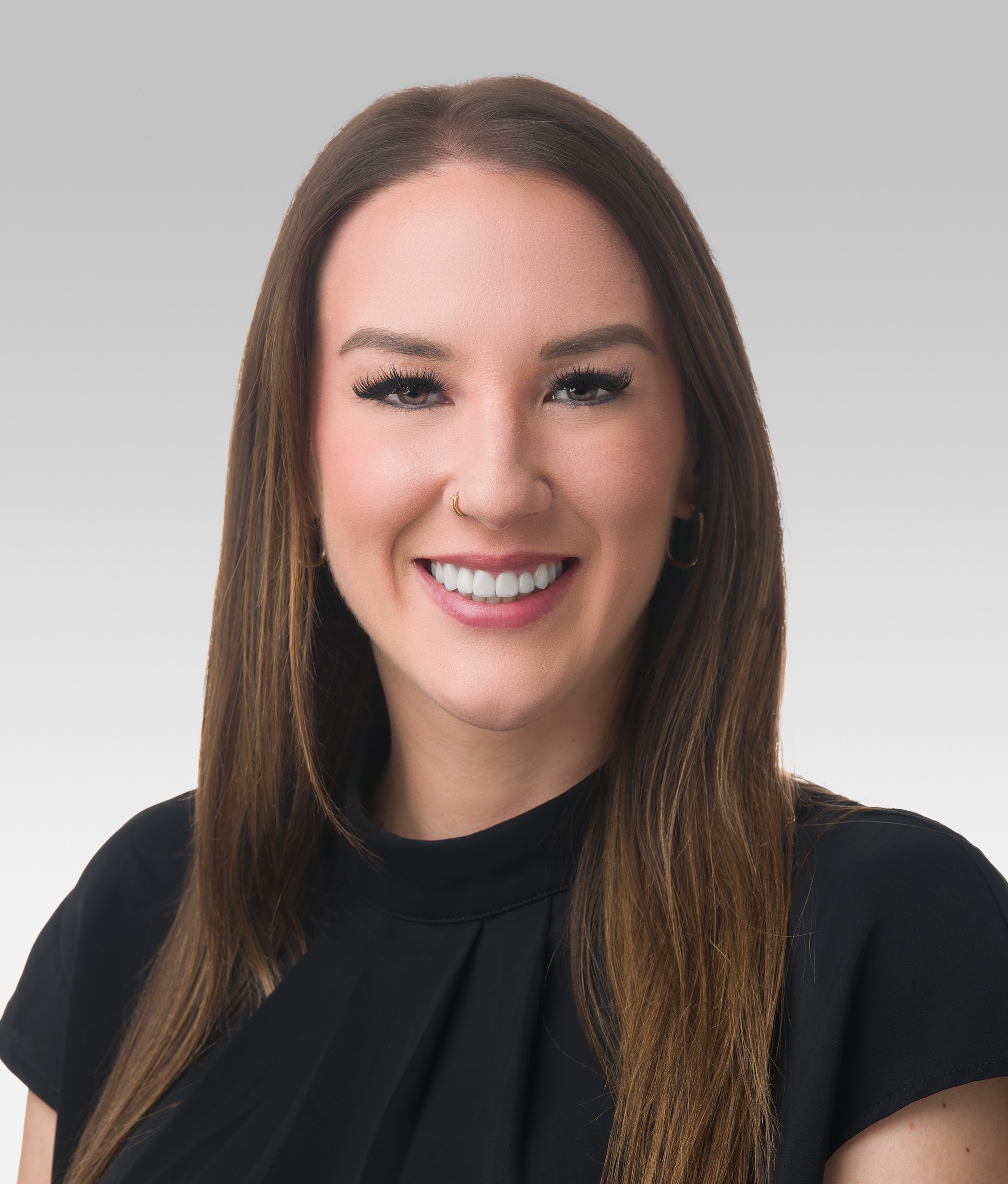
Abby Krupnik, PharmD, MBS, BCCP
PGY2 Cardiology Residency Program Coordinator
Abby attended South College School of Pharmacy where she earned her Doctor of Pharmacy. She completed her PGY1 pharmacy practice residency at Cleveland Clinic – Euclid Hospital and her PGY2 cardiology pharmacy residency at the University of Kentucky. She has been at Northwestern Memorial Hospital since 2023 and is certified by the Board of Pharmacy Specialties as a cardiology specialist. Abby’s clinical interests include cardiac surgery, mechanical circulatory support, heart transplant and LVAD populations.
Contact
Northwestern Memorial Hospital
251 East Huron Street
Pharmacy Department, Feinberg LC 700
Chicago, Illinois 60611
Email: byron.stevenson@nm.org
The PGY2 Critical Care Program at Northwestern Memorial Hospital, a Level I Trauma and Comprehensive Stroke Center, offers training in six specialized ICUs:
- Coronary Care Unit
- Cardiothoracic ICU
- Medical ICU
- Surgical ICU
- Thoracic ICU
- Neuro-spine ICU
Residents will gain exposure to treating critical patients in our emergency department, and they will become active members of the Code Response team and Airway Response team.
We equip our PGY2 residents to be fully integrated members of the interdisciplinary critical care team, capable of dealing with a wide range of diseases and disorders that occur in people who are critically ill and with complex multiple organ system failure.
Rotations
Required rotations:
- Administration and Medication Safety
- Cardiothoracic Intensive Care Unit
- Coronary Care Unit
- Emergency Medicine
- Medical Intensive Care Unit I
- Medical Intensive Care Unit II
- Neuro-spine Intensive Care Unit
- Surgical Intensive Care Unit
- Pharmacy Practice (initial orientation and longitudinal)
- Research (longitudinal)
- Professional Development and Committee (longitudinal)
- Presentations (longitudinal)
Elective rotations include the options below. You may arrange additional elective rotations based on your interests and service availability:
- Burn Intensive Care Unit (through John H. Stroger, Jr. Hospital of Cook County)
- Trauma ICU and/or Trauma ED (through John H. Stroger, Jr. Hospital of Cook County)
- Advanced Mechanical Circulatory Support/Thoracic ICU
- Solid Organ Transplant Service
- Lung Transplant Service
- Infectious Diseases Consult
- Pediatric ICU (through Ann & Robert H. Lurie Children’s Hospital of Chicago)
- Solid Organ Transplant ICU
- Toxicology (through Illinois Poison Control Center)
Additional Activities and Staffing Requirements
Residents must:
- Complete a longitudinal research project.
- Give a quarterly education lecture series to anesthesiology residents, formal internal presentations and one continuing educational presentation.
- Create one ICU institutional policy, procedure or protocol.
- Complete a medication use evaluation.
- Participate in one institutional committee and one external professional committee.
- Precept PGY1 residents and students throughout rotations; additional formal teaching experiences based on resident interest and availability.
- Earn Emergency Neurological Life Support (ENLS) and Pediatric Advanced Life Support (PALS) certification.
- Work toward longitudinal wellness goal(s) as determined by the resident and revisited quarterly with residency program director.
- Provide decentralized ICU evening staffing coverage every third weekend, one winter holiday (Thanksgiving, Christmas or New Year’s Day), and one summer holiday (Memorial Day, Fourth of July or Labor Day)
Program Staff
 Sophia Brown, PharmD, BCCCP
Sophia Brown, PharmD, BCCCPPGY2 Critical Care Residency Program Director
Sophia earned her Doctorate in Pharmacy at University of Kentucky College of Pharmacy. She went on to complete both a PGY1 pharmacy practice residency and PGY2 critical care pharmacy residency at Northwestern Memorial Hospital. Sophia has been practicing at Northwestern Memorial Hospital since her residency start in 2019 and now practices as a critical care pharmacist in various ICUs, primarily in the Medical and Surgical ICUs.
Dr. Brown serves as an active member in the Society of Critical Care Medicine Clinical Pharmacy and Pharmacology Section, as well as various institutional committees, including the Pharmacy and Therapeutics Committee. She recently served as the PGY2 critical care pharmacy residency coordinator before assuming her current role.
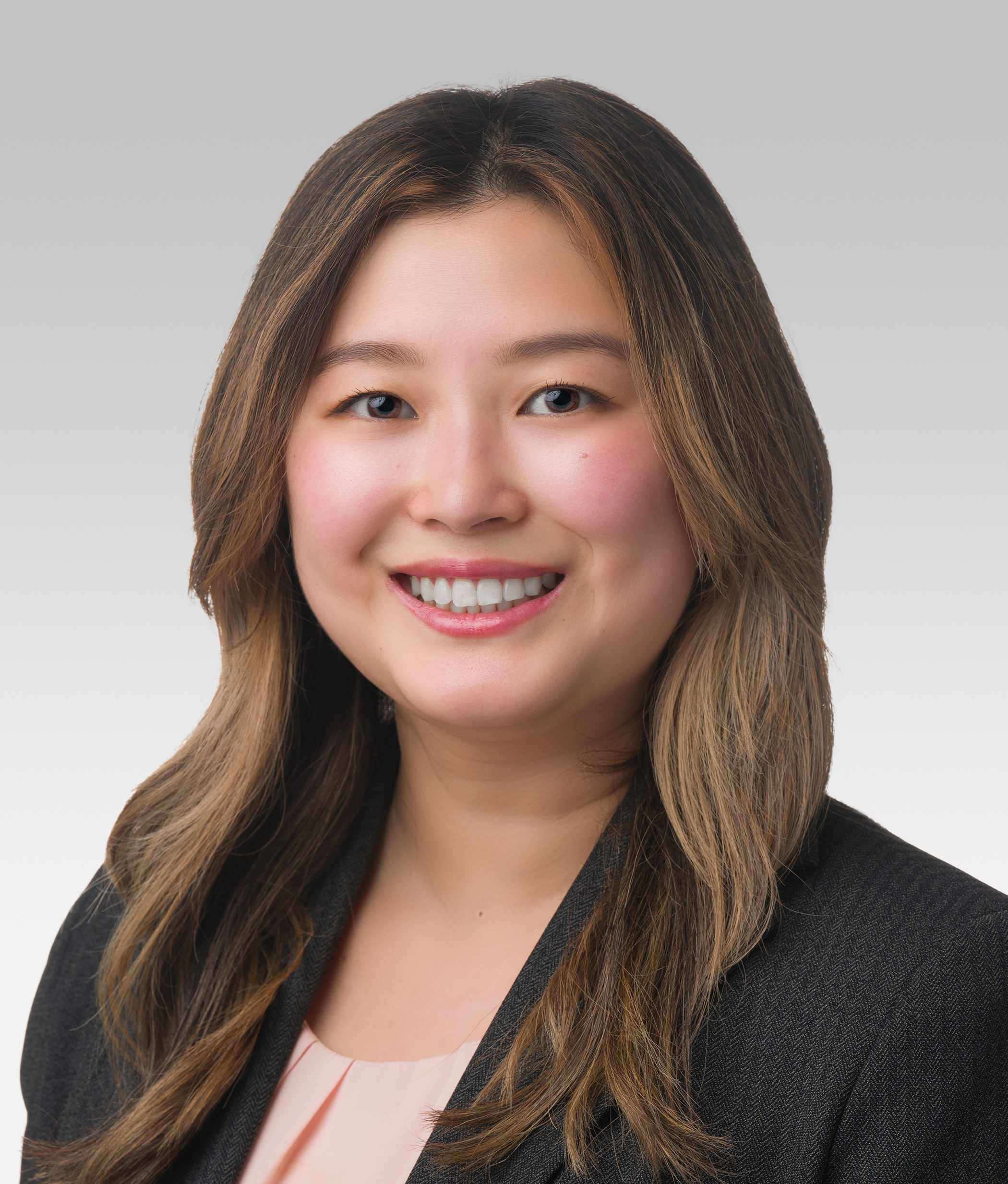
Stacy Lin, PharmD, BCCCP
PGY2 Critical Care Residency Program Coordinator
Stacy earned her Doctorate in Pharmacy at Cedarville University School of Pharmacy. She completed a PGY1 pharmacy practice residency and PGY2 critical care pharmacy residency at Cleveland Clinic Akron General. Stacy has been practicing at Northwestern Memorial Hospital since 2022, serving primarily as the evening ICU pharmacist. She is an active member of the Society of Critical Care Medicine.
Contact
Northwestern Memorial Hospital
251 East Huron Street
Pharmacy Department, Feinberg LC 700
Chicago, Illinois 60611
Email: sophia.brown@nm.org
Our residency program offers training in multiple care environments and exposure to diverse patient populations. Northwestern Memorial Hospital Emergency Department is a Level 1 Trauma and Stroke Center in downtown Chicago, allowing for a rewarding learning environment.
We offer one resident position each year.
As a resident, you will rotate through multiple areas of the hospital, often in conjunction with the emergency medicine medical residents. This fosters relationship development and the importance of working on an interdisciplinary team.
You can gain experience in multiple ICUs and will also have the opportunity for unique rotations like academia and advanced infectious disease. Our residency program aims to help create the next generation of pharmacy leaders in emergency medicine, with training to pursue a future in any emergency medicine practice setting or specialty of your choosing.
Rotations
Required rotations:
- Adult Emergency Medicine rotations:
- Orientation
- Emergency Medicine Community and Pediatrics
- Emergency Medicine Resuscitation
- Emergency Medicine Urgent Care and Psychiatry
- Emergency Medicine Capstone
- Emergency Medicine Extended Hours and Overnights
- Toxicology
- Medical ICU
Elective rotations include the options below. You may arrange additional elective rotations based on your interests and service availability:
- Surgical/Trauma ICU
- Neuro/Spine ICU
- Coronary Care Unit
- Infectious Diseases
- Academia
Additional Activities
- Research Project: You will participate in a longitudinal research project via a flipped research model and present it at a regional/national meeting. Additional medication use evaluation and operations-based research opportunities are regularly available.
- Presentations: As a resident, you will:
- Deliver one continuing education presentation.
- Give two presentations in Pharmacy Grand Round.
- Participate in physician, nurse and pharmacy in-services and presentations throughout the year.
- Education: You will attend and participate in the weekly didactic education led by the Northwestern University Emergency Medicine medical residency. During these weekly conferences, separated into organ system modules, you can interact with the physician residents. We consistently include professional development, wellness and literature evaluation in this curriculum.
- Precepting: You will serve as a preceptor for pharmacy students and PGY1 residents.
- Committee participation: As a resident, you will participate in multidisciplinary emergency department (ED) committees, including the stroke quality committee, as well as university- and pharmacy-specific committees. You will also have the opportunity to serve on Northwestern Memorial Hospital pharmacy resident committees and interact with our residents from different specialties.
Staffing
- Residents provide emergency medicine clinical staffing services every fourth weekend (12-hour shifts) throughout your residency year. Staffing only takes place in the emergency department, and it gives you the opportunity to be the primary emergency medicine pharmacist.
- Residents are required to staff one winter and one summer holiday.
Program Staff

Dion Tyler, PharmD, BCEMP, BCPS
Program Director, PGY2 Emergency Medicine Pharmacy Residency Program
Clinical Pharmacist, Emergency Medicine
Northwestern Memorial Hospital
Dios earned his Doctor of Pharmacy degree from University of Missouri-Kansas City. He then completed his PGY1 pharmacy residency at University of Colorado Hospital and PGY2 in emergency medicine at Northwestern Memorial Hospital/Rosalind Franklin University. After practicing in the emergency department at a community-teaching hospital on Chicago's west side, he returned to Northwestern Memorial Hospital as program director of the PGY2 Residency Program in Emergency Medicine. Dion's clinical interests include optimizing resuscitation efforts and antimicrobial stewardship in the emergency department.

Alli Cowett, PharmD, BCEMP
Program Coordinator, PGY2 Emergency Medicine Pharmacy Residency Program
Clinical Pharmacist, Emergency Medicine
Alli received her Doctor of Pharmacy degree from University of Maryland. She completed her PGY1 and Emergency Medicine PGY2 at Northwestern Memorial Hospital where she continued her career in the Emergency Department. In addition to residency program coordinator, Alli is the APPE preceptor and chair of the Education Committee within SAEM's Academic Emergency Medicine Pharmacist's national organization. Alli’s clinical interests include managing patients with substance use disorders, harm-reduction efforts, and antimicrobial stewardship.
Contact
Northwestern Memorial Hospital
251 East Huron Street
Pharmacy Department, Feinberg LC 700
Chicago, Illinois 60611
Email: dion.tyler@nm.org
This residency program aims to build on competencies achieved in a PGY1 residency to develop proficient, independent clinicians with expertise in infectious diseases pharmacotherapy and antimicrobial stewardship.
We offer one resident position each year.
Rotations
Required rotations:
- PGY2 Infectious Diseases Residency Orientation
- Microbiology laboratory and Infection Prevention
- Antimicrobial & Diagnostic Stewardship
- ID Medicine Consult
- ID Surgery/Oncology Consult
- Infectious Disease Immunocompromised/Transplant Consult
- Health System Stewardship Administration
- Community Hospital Stewardship
- Research (concentrated and longitudinal)
- Pharmacy Practice – ICU Staffing and ADSP Pager (longitudinal)
Elective rotations include the options below. You may arrange additional elective rotations based on your interests and service availability:
- HIV Community Ambulatory Clinic
- Pediatric Infectious Diseases
- Emergency Medicine
- Advanced Infectious Disease consults
Additional Activities
- Research project: Each resident will complete an independent, longitudinal research project. You must present this project in a formal setting, such as a department and a local, state or national conference.
- Presentations: As a resident, you must present:
- Two formal presentations to the Pharmacy Department throughout the year
- One continuing education presentation for pharmacists
- Your research project defense and final research presentation
- Administrative project: Each resident will help produce, edit or change at least one infectious diseases or stewardship policy, procedure or protocol.
- Committee participation: You will be involved with the system stewardship P&T committee as well as local and system infection prevention, antimicrobial and diagnostic stewardship, and microbiology committees. We also require you to be involved in a national committee for a professional society, such as the Society of Infectious Diseases Pharmacists (SIDP) or Vizient’s Antimicrobial Stewardship Committee.
- Precepting experiences: You will be involved with precepting PGY1 residents and pharmacy students during their learning experiences.
- Teaching certificate: You may participate in a teaching certificate program. You may participate in a teaching certificate program and/or present didactic lectures if interested
Staffing
As a resident, you will:
- Provide evening clinical service coverage every third weekend as the decentralized ICU pharmacist.
- Cover the Antimicrobial and Diagnostic Stewardship pager every third week on weeknight evenings and on weekends.
- Be expected to staff one winter holiday (Thanksgiving, Christmas or New Year’s Day) and one summer holiday (Memorial Day, Fourth of July or Labor Day).
Program Staff

Christie Bertram, PharmD, BCIDP
PGY2 Infectious Diseases Residency Program Director
Dr. Bertram is an infectious diseases, and antimicrobial and diagnostic stewardship clinical pharmacist at Northwestern Memorial Hospital. She is also an adjunct assistant professor of Pharmacy Practice at Rosalind Franklin University College of Pharmacy. Dr. Bertram earned her Doctor of Pharmacy degree from Butler University College of Pharmacy & Health Sciences. She completed a PGY1 pharmacy practice residency at Northwestern Memorial Hospital and a PGY2 infectious diseases residency at Northwestern Memorial Hospital and Midwestern University Chicago College of Pharmacy.
Her primary interest areas include antimicrobial stewardship, treating multi-drug-resistant infections, antibiotic allergies, as well as microbiology and rapid diagnostic testing. She is an active member of the Society of Infectious Diseases Pharmacists.
Dr. Bertram’s research interests include antimicrobial pharmacokinetics in patients who are critically ill, assessing how penicillin allergy labels affect broad-spectrum antibiotic use, and evaluating the impact of rapid diagnostic testing on antimicrobial optimization.
Contact
Northwestern Memorial Hospital
251 East Huron Street
Pharmacy Department, Feinberg LC 700
Chicago, Illinois 60611
Phone: 312.472.0278
Email: christie.bertram@nm.org
The PGY2 Oncology Pharmacy residency is a 12-month training program focused on medication management of adult oncology patients. The program provides residents opportunities to develop clinical expertise and independence in the care of oncology patients. Residents will work as part of a multidisciplinary team in the acute care and ambulatory care settings. The goal of the residency program is to build upon clinical knowledge from the resident’s PharmD education and PGY1 pharmacy residency experience, with clinical opportunities across various oncology disease states. Upon completion of the program, the resident will be prepared for a role as a clinical oncology pharmacist and be prepared for board certification in oncology pharmacy.
Rotations
Required Rotations
- Orientation
- Acute Care: Leukemia
- Acute Care: Lymphoma and Multiple Myeloma
- Acute Care: Medical Oncology
- Ambulatory Care: Breast and Gynecologic Oncology
- Ambulatory Care: Gastrointestinal Oncology and Melanoma
- Ambulatory Care: Genitourinary Oncology
- Ambulatory Care: Malignant Hematology
- Ambulatory Care: Thoracic Oncology
- Investigational Drug Services
- Oncology Administration
- Stem Cell Transplant/ Cellular Therapies
Longitudinal Rotations
- Acute Care: Oncology Pharmacy Practice
- Ambulatory Care: Oncology Pharmacy Practice
- Research Project
Elective Rotations
- Ambulatory Care: Benign Hematology
- Pediatric Hematology/ Oncology/ Bone Marrow Transplant (offsite at Lurie Children's Hospital of Chicago)
- Specialty Pharmacy: Oral Oncolytics
- Advanced Oncology Practice
- Additional elective learning experiences available upon request
Additional Activities
- Research Project: Participation in a longitudinal research project that will be presented at the Hematology/Oncology Pharmacy Association Annual Meeting is required.
- Administrative Project: Participate in the production, editing, or modification of at least one institutional policy, procedure, or protocol related to patient care for oncology patients. Residents will also work on an oncology medication use evaluation.
- Presentations: Each resident will be incorporated into the rotating presentation schedule for Noon Conference, which amounts to approximately 2 formal presentations and 1 Continuing Education Program throughout the year. Additional presentations will be determined on an as-needed basis.
- Committee Participation: The resident will participate in the Oncology Pharmacy and Therapeutics Committee and present an oncology drug monograph.
- Teaching Experiences: A teaching certificate program is available for interested residents.
Staffing
- The residents will staff in the inpatient oncology pharmacy satellite every third weekend throughout the residency year.
- The residents will work one 8-hour shift in an operational capacity every three weeks in the outpatient oncology infusion center.
- In addition, the resident will staff in the inpatient oncology pharmacy satellite on one winter holiday (Thanksgiving, Christmas or New Year's Day) and one summer holiday (Memorial Day, 4th of July, or Labor Day).
About Lurie Cancer Center
Lurie Cancer Center at Northwestern Memorial Hospital is located in the Streeterville neighborhood in downtown Chicago, IL. For more information on Lurie Cancer Center, follow this link .
Program Director
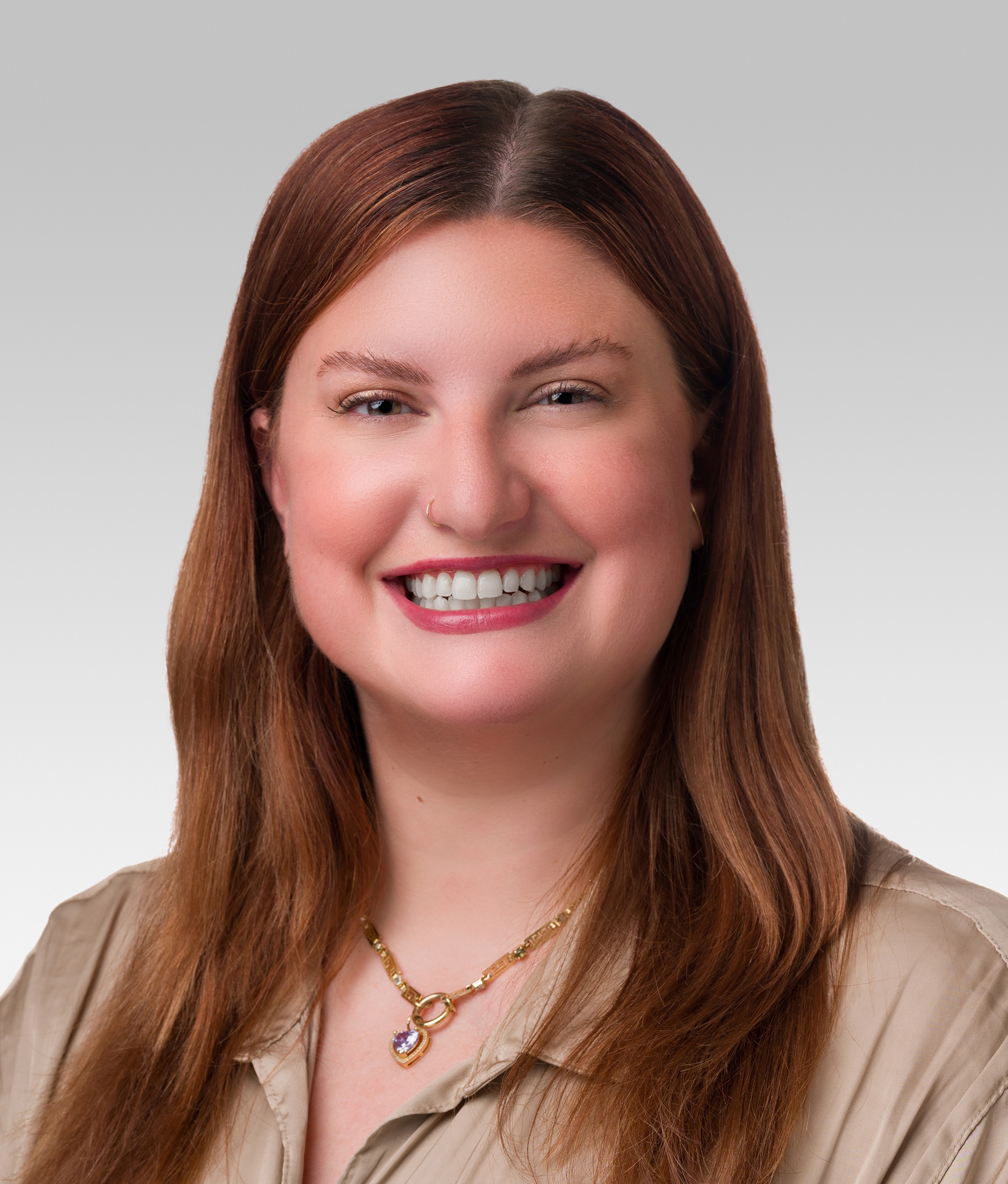 Alison Svoboda, PharmD, BCOP
Alison Svoboda, PharmD, BCOP
PGY2 Oncology Residency Program Director
Alison Svoboda is a native of the greater Chicagoland area. She received her Bachelor of Science in Chemistry at the University of Illinois Springfield. She received her Doctor of Pharmacy from Midwestern University—Chicago College of Pharmacy. She subsequently completed a pharmacy practice residency and a hematology/oncology pharmacy residency here at Northwestern Memorial Hospital. She is certified by the Board of Pharmacy Specialties as a board-certified oncology pharmacist. Dr. Svoboda has been at Northwestern Memorial Hospital since 2017 and is currently practicing as an ambulatory care clinical pharmacist in the breast medical oncology clinic at Lurie Cancer Center’s Maggie Daley Center for Women’s Cancer Care. She works alongside medical oncologists, advanced practice providers and various other clinical support staff to ensure safe and effective therapy and pharmacotherapy education for breast cancer patients. Dr. Svoboda is passionate about caring for breast cancer patients, patient education, pharmacy resident training and advancing the practice of clinical pharmacy in the ambulatory care setting.
Contact
Northwestern Memorial Hospital
251 East Huron Street
Pharmacy Department, Feinberg LC 700
Chicago, Illinois 60611
Phone: 312.695.2845
Email: alison.svoboda@nm.org
The PGY2 in Solid Organ Transplant is designed to prepare residents to practice independently as a clinical specialist in both the inpatient and outpatient transplant settings. The resident is exposed to the care of adult kidney, pancreas, liver, heart, and lung transplant recipients. The resident serves as a key member of the interdisciplinary transplant team in both the pre- and post-transplant settings. Focus areas of the program include clinical rotations encompassing all organ subtypes, quality improvement and clinical research projects, and transitions of care. We offer one resident position a year.
Rotations
Required Rotations (rotations are four weeks unless otherwise specified)
- Orientation [2-4 weeks]
- Abdominal Transplant I
- Abdominal Transplant II
- Abdominal Transplant Clinic
- Transplant Hepatology
- Heart Failure and Heart Transplant
- Longitudinal Transplant Weekend Staffing
- Longitudinal Transplant Research
- Longitudinal Transplant Administrative Project
- Lung Transplant I
- Lung Transplant II
- Transplant Infectious Diseases [2-4 weeks]
Elective Rotations
- Pediatric Solid Organ Transplant (at Ann & Robert H. Lurie Children’s Hospital of Chicago ) [2-4 weeks]
- Lung Transplant Clinic [2-4 weeks]
- Transplant ICU [2-4 weeks]
Additional experiences may be arranged based on resident interest and service availability.
Additional Activities
Research Project: There will be 20 research days that can be utilized by the resident throughout the year to complete their research project. Each resident will complete a transplant-related clinical research project that is suitable for poster or platform presentation at the American Transplant Congress or International Society of Heart and Lung Transplantation as well as a regional conference.
Administrative Project: Each resident will complete a transplant-related administrative project which involves creating, developing or modifying an institutional policy, procedure or protocol in relation to solid organ transplant patients.
Presentations: Residents are required to give three formal presentations throughout the year during Resident Noon Conference. One of these presentations will be a continuing education program. Committee Participation: The resident will participate in the following committees:
- 14E Quality Committee
- Transplant Quality Committees (Kidney and Pancreas, Liver, Lung)
- Transplant Listing and Selection Committees (Kidney and Pancreas, Liver, Lung)
Precepting Experiences: The PGY2 resident will be involved with precepting PGY1 residents and pharmacy students during their learning experiences.
Teaching Experiences: The resident may participate in a teaching certificate program and present didactic lectures based on available opportunities.
Staffing
- The resident will staff on the inpatient transplant unit every third weekend throughout the residency year
- In addition, the resident will be expected to staff one winter holiday on the inpatient transplant unit (Thanksgiving, Christmas or New Year's Day) and one summer holiday (Memorial Day, 4th of July, or Labor Day)
Program Director
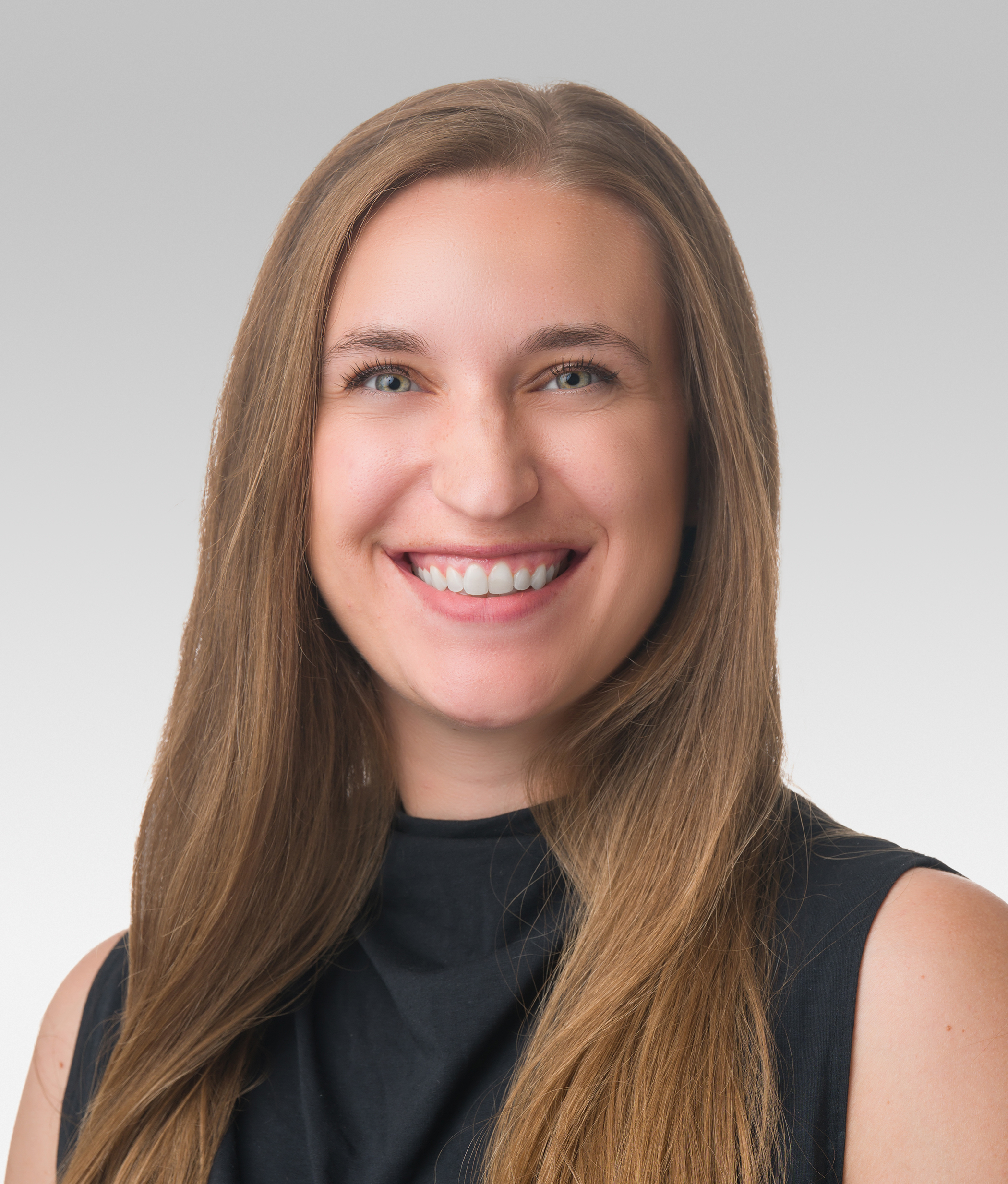 Alyson Prom, PharmD, BCTXP
Alyson Prom, PharmD, BCTXP
PGY2 Solid Organ Transplant Pharmacy Residency Director
Alyson Prom, PharmD, BCTXP, received her Bachelor of Science in Biology from the University of Minnesota – Twin Cities and her Doctor of Pharmacy from the University of Wisconsin – Madison. She completed her PGY1 and PGY2 residencies at the University of North Carolina Medical Center in Chapel Hill, NC. Outside of work, she enjoys reading, spending time outside, and keeping active with team sports.
Clare Kane, PharmD, BCTXP
PGY2 Solid Organ Transplant Pharmacy Residency Coordinator
Clare Kane, PharmD, BCTXP received her Bachelor of Science in Chemistry from the University of Illinois and her Doctor of Pharmacy from the University of Illinois at Chicago (UIC). She completed her PGY1 residency at UIC and completed her PGY2 residency at the University of Kentucky. Outside of work she enjoys trying new food around Chicago and seeing the Dave Matthews Band in concert.
Contact
Northwestern Memorial Hospital
251 East Huron Street
Pharmacy Department, Feinberg LC 700
Chicago, Illinois 60611
Phone: 312.926.8666
Email: alyson.prom@nm.org
